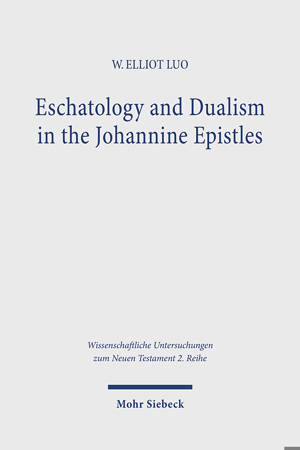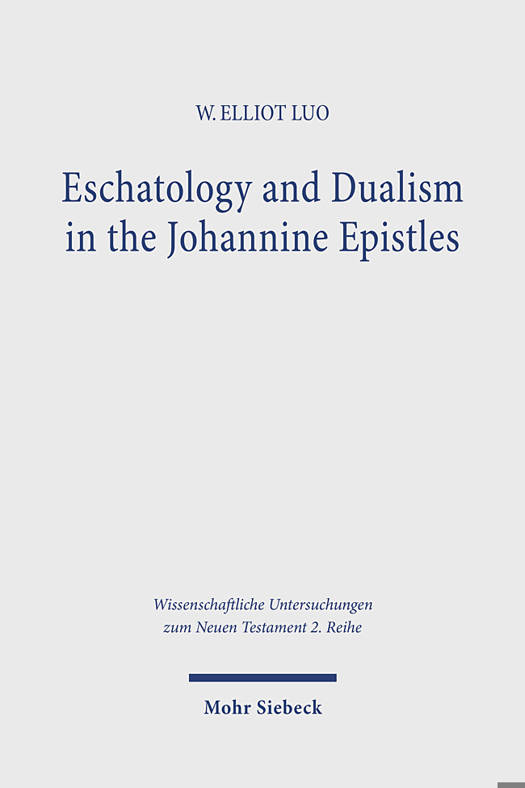
- Afhalen na 1 uur in een winkel met voorraad
- Gratis thuislevering in België vanaf € 30
- Ruim aanbod met 7 miljoen producten
- Afhalen na 1 uur in een winkel met voorraad
- Gratis thuislevering in België vanaf € 30
- Ruim aanbod met 7 miljoen producten
Zoeken
Eschatology and Dualism in the Johannine Epistles
W Elliot Luo
Paperback | Engels | Wissenschaftliche Untersuchungen zum Neuen Testament 2. Reihe | WUNT II | nr. 620
€ 104,45
+ 208 punten
Omschrijving
Eschatology, the study of "end times" or the last things, plays a significant role in both Johannine theology and the Gospel of the Epistles of John. However, in the study of Johannine eschatology, the focus is usually on the Gospel, and the Epistles are often viewed as secondary. Some scholars argue that eschatology is not prominent in the Epistles because there are only a few passages with eschatological connotations. W. Elliot Luo argues that the eschatology of the Johannine Epistles is more prominent and displays distinct features. The dominant eschatology is realised rather than futuristic, characterised by dualistic features, such as light and darkness, while significant eschatological concepts, like the Antichrist, have been underestimated. The author thoroughly examines key eschatological passages and motifs in the Epistles and reaches the conclusion that realised eschatology has the more prominent status in the Johannine Epistles.
Specificaties
Betrokkenen
- Auteur(s):
- Uitgeverij:
Inhoud
- Aantal bladzijden:
- 340
- Taal:
- Engels
- Reeks:
- Reeksnummer:
- nr. 620
Eigenschappen
- Productcode (EAN):
- 9783161634413
- Verschijningsdatum:
- 1/12/2024
- Uitvoering:
- Paperback
- Formaat:
- Trade paperback (VS)
- Afmetingen:
- 231 mm x 155 mm
- Gewicht:
- 231 g

Alleen bij Standaard Boekhandel
+ 208 punten op je klantenkaart van Standaard Boekhandel
Beoordelingen
We publiceren alleen reviews die voldoen aan de voorwaarden voor reviews. Bekijk onze voorwaarden voor reviews.











